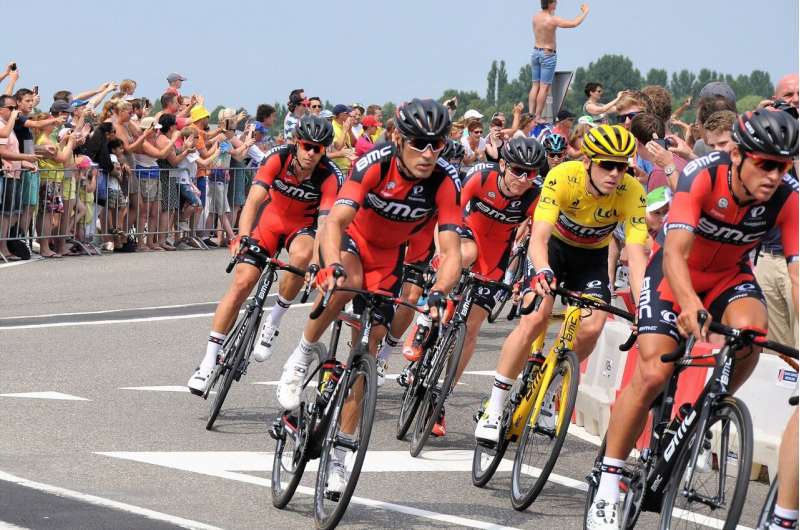This article has been reviewed according to Science X's editorial process and policies. Editors have highlighted the following attributes while ensuring the content's credibility:
fact-checked
peer-reviewed publication
trusted source
proofread
Elite athletic events may not be out of reach for recreational athletes

A new case study finds that recreationally trained athletes—"regular" people, as compared to elite athletes—may be able to achieve the extremely high levels of energy expenditure needed to complete high-endurance athletic events.
The study, the first to show the epitome of endurance is possible for mere mortals, is published in the Journal of Applied Physiology, titled "The Tour de France, also possible for mortals? A comparison of a recreational and a World Tour cyclist."
The Tour de France, one of Europe's well-known three-week Grand Tours, is a cycling race that requires enormous amounts of energy output. Cyclists who complete the race's 21 stages spanning approximately 2,112 miles must not only sustain high levels of energy and power throughout the active periods, but also need to consume enough calories—roughly 7,000 to 8,000 daily—to avoid losing weight during the race.
"The unique physiological demands of these races have been considered higher than those that can be undertaken by most endurance-trained humans during a similar time period," the authors of a new study wrote.
The case study compares a 58-year-old male recreational athlete (who started training about a year before the study) with a 27-year-old male professional elite cyclist, both of whom participated in the 2023 Tour de France. In addition to the age gap, the recreational athlete was about five inches taller and approximately 64 pounds heavier than the elite cyclist.
The recreational athlete began the cycling race one week before the official start of the Tour de France—an event held in conjunction with the Tour de France to raise money for Cure Leukemia—but completed the same number of stages as the professional athlete. He logged both more total hours (191 versus 87) and longer days on the road (just over 9 hours compared to a little over 4 hours) than the professional athlete to finish each stage. This meant the recreational cyclist had less time each day to recover than the professional athlete. Over the course of the three-week race, the elite cyclist consumed enough calories to maintain his body weight, while the recreational cyclist lost a minimal amount of weight, between two and four pounds.
"Although the recreational cyclist was not as aerobically fit and produced 38% lower average power output over the course of event, the nearly twofold longer cycling time along with a markedly lower recovery time between stages led to comparable [total daily energy expenditure] levels to the professional cyclist," the authors wrote.
This suggests that the limits of total daily energy expenditure observed in professional highly trained men can also be attained by recreational athletes. "These findings reflect the enormous endurance capabilities of not only professional trained athletes but also recreationally trained adults, the authors wrote. "Once again, [this is] more evidence confirming that we are born to move," said Pedro L. Valenzuela, Ph.D., corresponding author of the study.
"" is published ahead of print in the Journal of Applied Physiology.
More information: David Barranco-Gil et al, The Tour de France, also possible for mortals? A comparison of a recreational and a World Tour cyclist, Journal of Applied Physiology (2024). DOI: 10.1152/japplphysiol.00798.2023


















